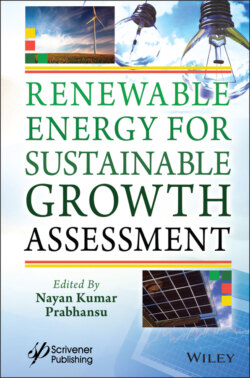Читать книгу Renewable Energy for Sustainable Growth Assessment - Группа авторов - Страница 70
Abstract
ОглавлениеBiomass is an abundant carbon-neutral source in the environment; thus, it is an essential resource for energy conversion in developed and underdeveloped countries. Government agencies, R&D institutions, research institutions, and industries are engaged in the effective utilization of biomass to generate alternative fuels without or with minimum hazards to the environment. There is also evidence that a particular biomass process can cause greenhouse gas emissions as fossil fuels. Biomass constitutes a wide variety of materials such as lignocellulosic biomass (wood waste, crop residues, rice husk, sawdust and agricultural residues), micro and macroalgal biomass, animal residues, municipal solid waste, sewage sludge, and industrial waste (bagasse). Due to their complex nature, high moisture content, low pH, micro and macronutrients, and C/N ratio imbalance, these residues are slow in degradation on exposure to the environment. To overcome these impacts and for the cheapest energy production, many research works are still in progress to meet the world’s energy crisis via renewable resources. This chapter will give a detailed account of the biomass effect, the energy crisis, biomass impact, and the efficient biomass conversion into energy through developed technology.
Keywords: Biomass, lignocellulosic wastes, biomass utilization, alternate fuel, biomass impact, energy technology
